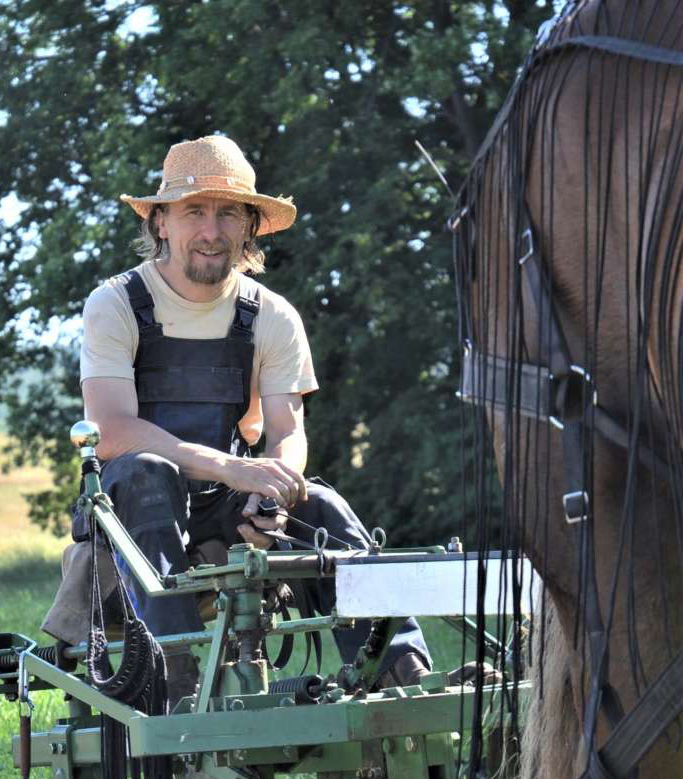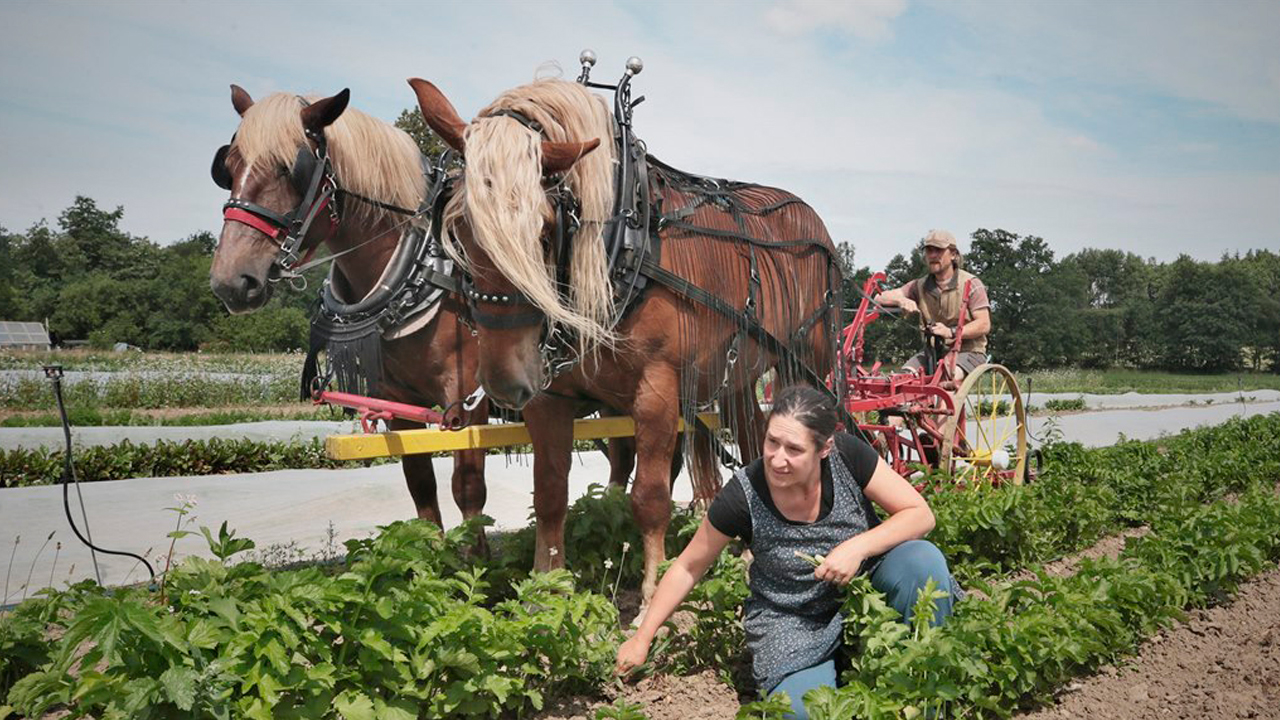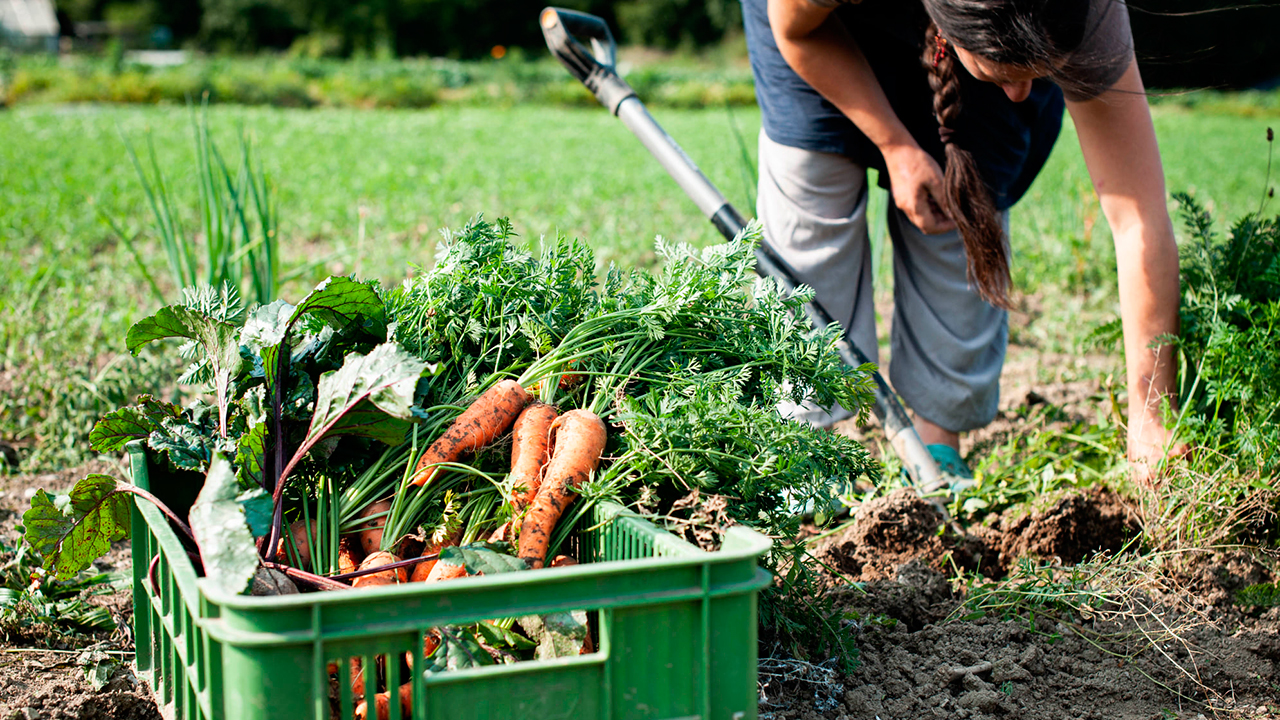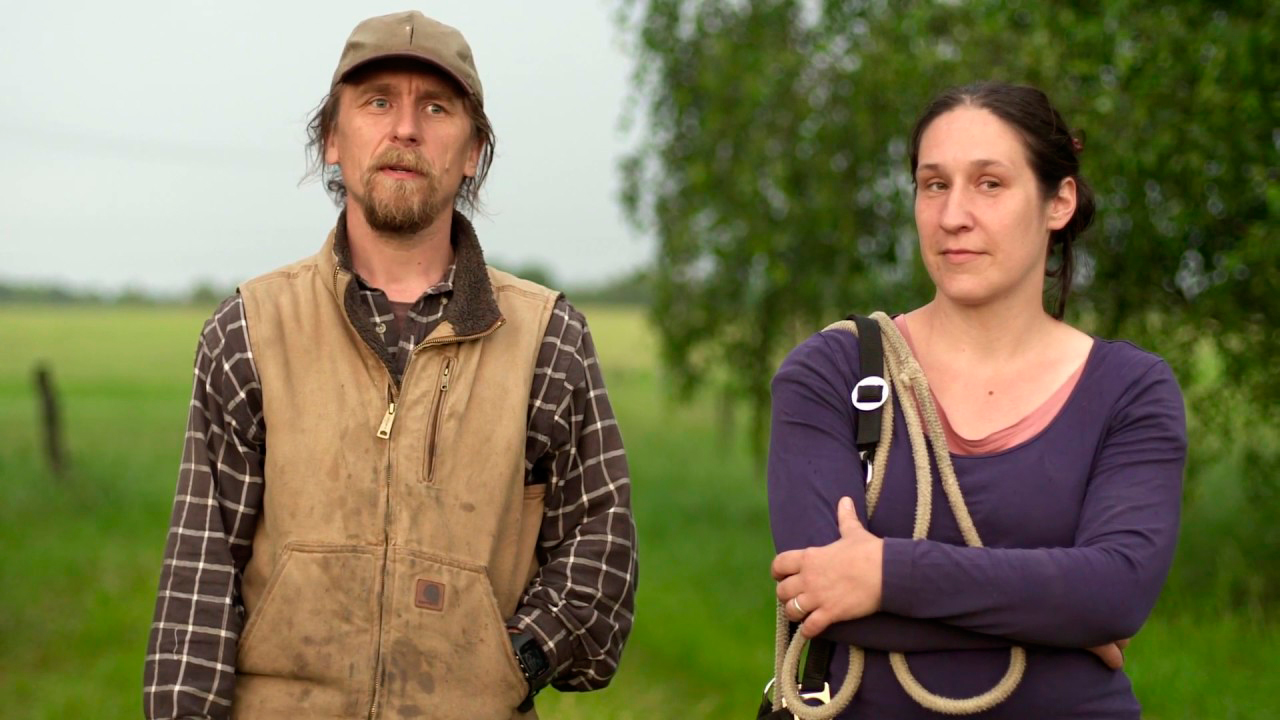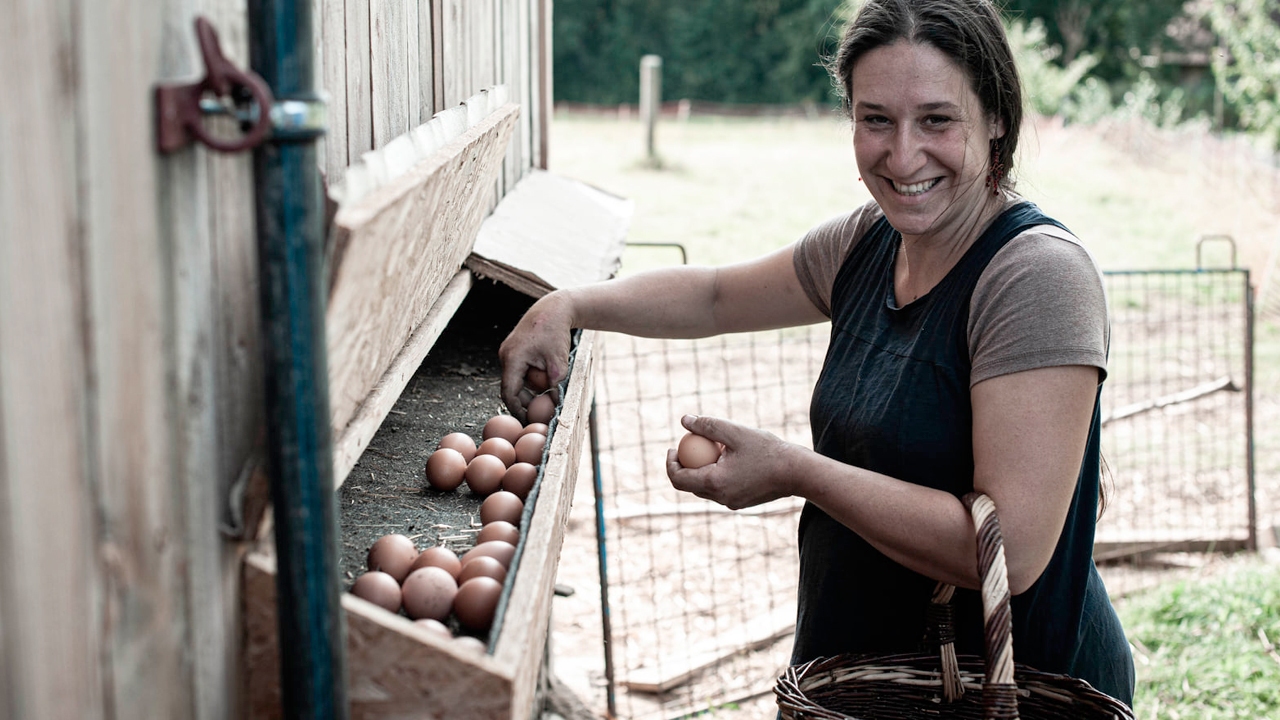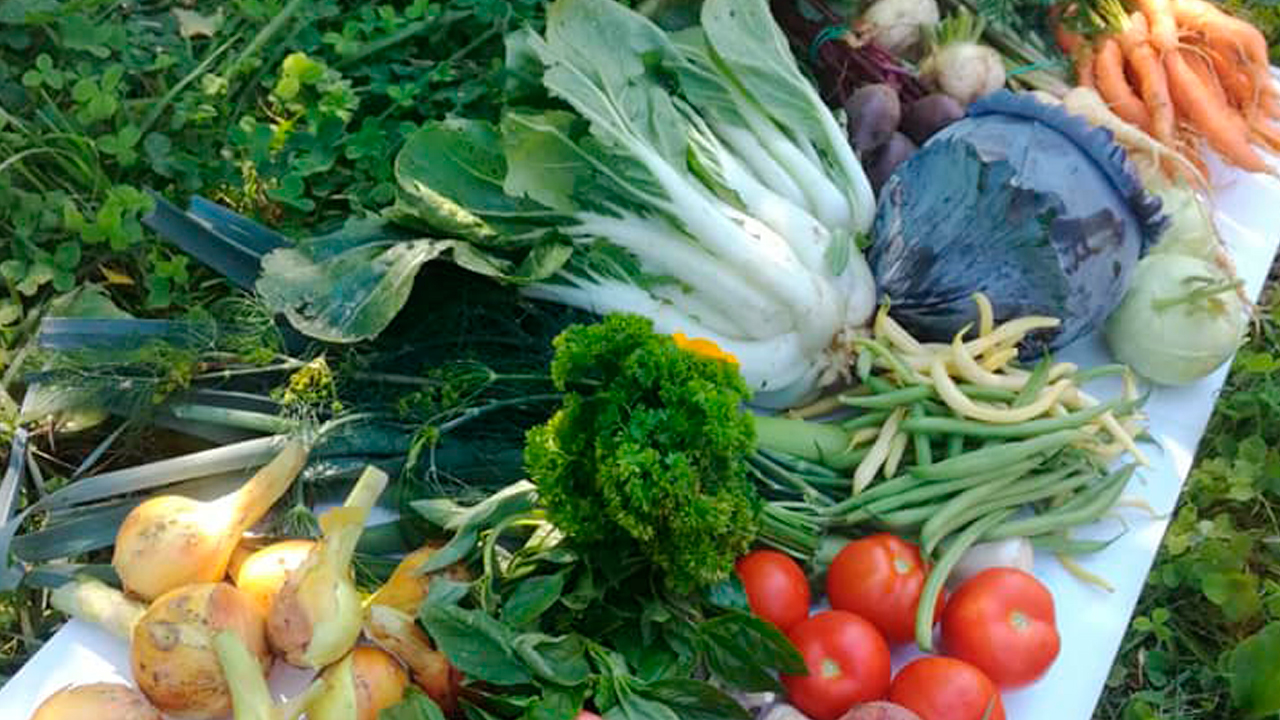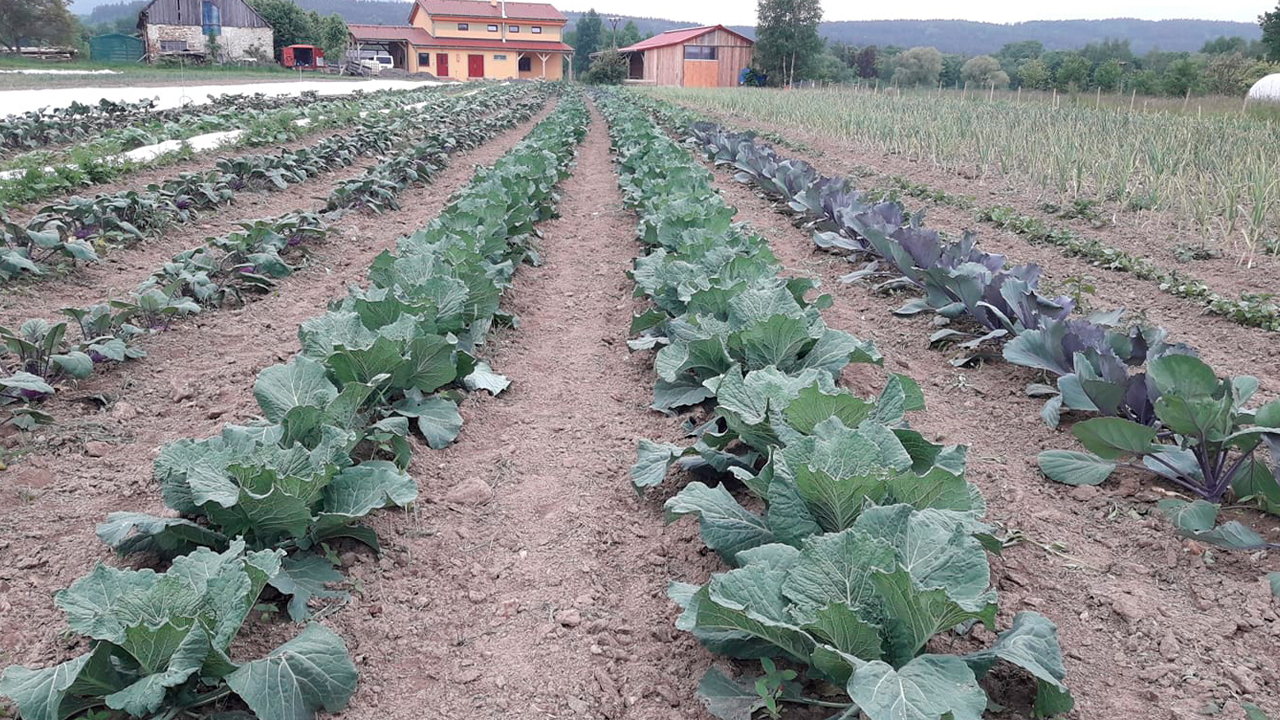Farm Lukava is a small-scale agroecological family farm located in the north of the Czech Republic and owned by Jana and Martin Rosenbaum. Their main activity is the growing of organic vegetables with the use of horsepower. Besides horses, they also have hens. Their view on farming includes a responsible approach to nature and an emphasis on the high quality of their products. They promote communitysupported agriculture and use of horses in farming practice. Additionally, they are engaged in cooperation with other partners in educational, social and other activities, for which they used financing in the form of crowdfunding.
![]() Name: Martin Rosenbaum.
Name: Martin Rosenbaum.
![]() Birth year: 1976
Birth year: 1976
![]() Gender: Male.
Gender: Male.
![]() Education: Martin holds a master’s degree in agriculture from the University of South Bohemia in České Budějovice. He got inspired for developing his farming activities during various student internships completed on farms abroad (in Canada, in New Zealand). He also took part in the European project named Bond, which focuses on the role of farmers and land managers in the framework of environmental and economic sustainability schemes.
Education: Martin holds a master’s degree in agriculture from the University of South Bohemia in České Budějovice. He got inspired for developing his farming activities during various student internships completed on farms abroad (in Canada, in New Zealand). He also took part in the European project named Bond, which focuses on the role of farmers and land managers in the framework of environmental and economic sustainability schemes.
![]() Occupation: Farmer.
Occupation: Farmer.
![]() Farm location: Jindřichovice pod Smrkem 198, Jindřichovice pod Smrkem 463 65.
Farm location: Jindřichovice pod Smrkem 198, Jindřichovice pod Smrkem 463 65.
![]() Farm Area in ha: 39 ha.
Farm Area in ha: 39 ha.
![]() Farm description: About 15 years ago, Martin and Jana Rosenbaum moved to Northern Czechia to start their life on the farm. At the beginning, they focused on sheep husbandry and produced meat and dairy products that were processed in their own small farm cheese factory.
Farm description: About 15 years ago, Martin and Jana Rosenbaum moved to Northern Czechia to start their life on the farm. At the beginning, they focused on sheep husbandry and produced meat and dairy products that were processed in their own small farm cheese factory.
In 2017, the farmers left the original place and shift the focus of the farm to growing organic vegetables with the modern use of horses. Besides horses keeping, they also breed laying hens. The main selling channel of the farm is the community-supported agriculture, which means products are sold directly to the end customer, without long distribution chains. Jana and Martin are the only full-time workers on the farm, however they always receive help from their five children.
As they would like to pass on their experience to other people interested in agriculture, Jana and Martin provide long-term internships on their farm. Trainees represent therefore additional labour force on the farm. Besides crop and animal production, they carry out a lot of other activities and cooperate with other farmers, various NGOs, scholars and other partners. They also organise events for the local community, friends, shareholders of their community-supported agriculture and the general public.
After various experience with farmers market, on-farm sale of products, supply to eco-shops and others, they decided to join a community-supported agriculture and sell their products to shareholders of their group. They now consider this selling channel as the best way of distribution of their production. In the future they would like to increase the number of their shareholders.
The overall financial situation of the farm is currently stable.
Together with two NGOs, they are building a new educational centre called “Konipas”. This project should in the future connect a productive eco-farm with modern use of horsepower and training centre for eco-farmers starting their business. Through a crowdfunding campaign they collected the money that was used to buy a caravan to accommodate trainees.
Part of the farmland was sold and subsequently long-term leased from the NGO “Foundation for soil” (Nadace pro půdu). The funds obtained from this sale were re-invested to establishment of the education centre. Part of the lease agreement with the foundation is the right to continue managing the leased land meaning that farmers gained additional funding for other activities and at the same time keeping space to carry out their farming activities.
Incorporation of social work should be another important aspect of their farm in the future as Martin and Jana would like to also create a place for people with health or social disadvantages.
“You should strive for direct contact with your customers. We see the financial sustainability in a close connection with people, in sharing benefits and risks and in solidarity.”
![]() Training experiences and gaps: One of the most relevant aspects for the management of such a farm is the ability to cooperate with others and the willingness to talk with people. Particularly valuable in the process of re-building the farm on the new location was the collaboration with other organisations with the same objectives i.e. sustainable land management, ecological production of quality food and eco- and environmental education. All their activities are connected to people, communication, sharing and learning.
Training experiences and gaps: One of the most relevant aspects for the management of such a farm is the ability to cooperate with others and the willingness to talk with people. Particularly valuable in the process of re-building the farm on the new location was the collaboration with other organisations with the same objectives i.e. sustainable land management, ecological production of quality food and eco- and environmental education. All their activities are connected to people, communication, sharing and learning.
Along with further developments of the farm, training especially in finance management and human resources could be useful.
![]() Final considerations: As a small business, Jana and Martin are continuously struggling with the lack of finance needed for the investment, which also applies for the pre-investment of the funds from the Rural Development Programme which are therefore unreachable for them. Over the years, they got various interest-free loans from the Association of Sheep and Goats Breeders of the Czech Republic r.s., of which they were members, PRO-BIO Association of Organic Farmers and fellow farmers to invest in their cheese factory. While the funds obtained can help them to cover individual items, these were always only partial amounts (around 100,000 CZK).
Final considerations: As a small business, Jana and Martin are continuously struggling with the lack of finance needed for the investment, which also applies for the pre-investment of the funds from the Rural Development Programme which are therefore unreachable for them. Over the years, they got various interest-free loans from the Association of Sheep and Goats Breeders of the Czech Republic r.s., of which they were members, PRO-BIO Association of Organic Farmers and fellow farmers to invest in their cheese factory. While the funds obtained can help them to cover individual items, these were always only partial amounts (around 100,000 CZK).
A big challenge is access to land and consequently financial uncertainty, which was partly overcame by the cooperation with the allied NGO, that provided them both with finance and land for farming activities under fair conditions.
Community-supported agriculture is ensuring them secure income and is also saving them time. They are planning in the future to widen their shareholders’ base.
As the crowdfunding method proved to be effective and is probably also the only way that could be used for the financing of their project of educational farm, they are planning to seek further donations in a similar way.


